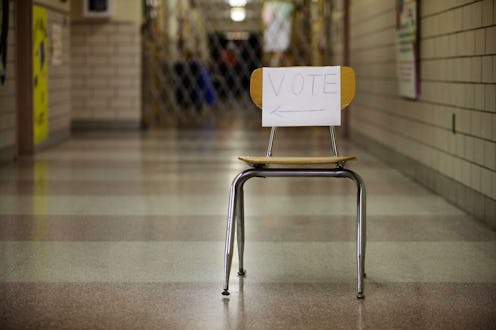News
The Ohio County With The Most Delegates
The set of primary elections scheduled to go down in a number of states on March 15 has earned the day the name "Mega Tuesday" for a reason. While Super Tuesday pushed the country into all-out primary season, the elections happening on Mega Tuesday will result in an enormous number of delegates being awarded to the victorious candidates. The state of Ohio, where nearly 150 delegates will be distributed among the Democratic candidates and one GOP candidate will take all 66 Republican delegates available, perfectly exemplifies just how high the stakes are for the hopefuls on the Ides of March. And with some districts offering significantly more delegates than others, the candidates will have their eyes on a few places in particular. So which Ohio county has the most delegates?
There are a few bits of information to keep in mind when delving into the topic of delegates in the Buckeye State. Ohio has 88 counties, but delegates are apportioned to the sixteen congressional districts in the state. The parties have different numbers of delegates overall and different numbers of delegate votes coming from each district. Of the 160 total delegates in the Democratic party in Ohio, 143 are up for grabs on Tuesday's election. Of those, 93 are from Ohio's 16 congressional districts. (The other 50 are at-large, or statewide, delegates and PLEO delegates.)
Ohio's third and eleventh congressional districts offer the two highest numbers of Democratic party delegates by far: 12 delegates and 17 delegates, respectively. It's no surprise that the state's two most highly populated counties — and the state's two biggest cities — sit within these districts. The first is Franklin County, which houses the capital city of Columbus, and the second is Cuyahoga County, where Cleveland is. More than any other county, then, American voters will be looking to Cuyahoga to find out which Democratic candidate will take home the biggest prize in the Buckeye State.
The Republican party in Ohio works on a totally different system. The party has 66 delegates in the state, 48 of whom are coming from congressional district votes. And totally unlike the Democratic party's method of divvying up votes, each district gets three Republican delegates.
Then there's another gamechanger for GOP candidates. Whereas the Democratic primary will award candidates delegates in proportion to the vote they receive, the GOP primary is winner-take-all. So each GOP candidate is going into Tuesday's primary with a smaller focus on how particular counties are voting and a larger focus on who wins statewide.
